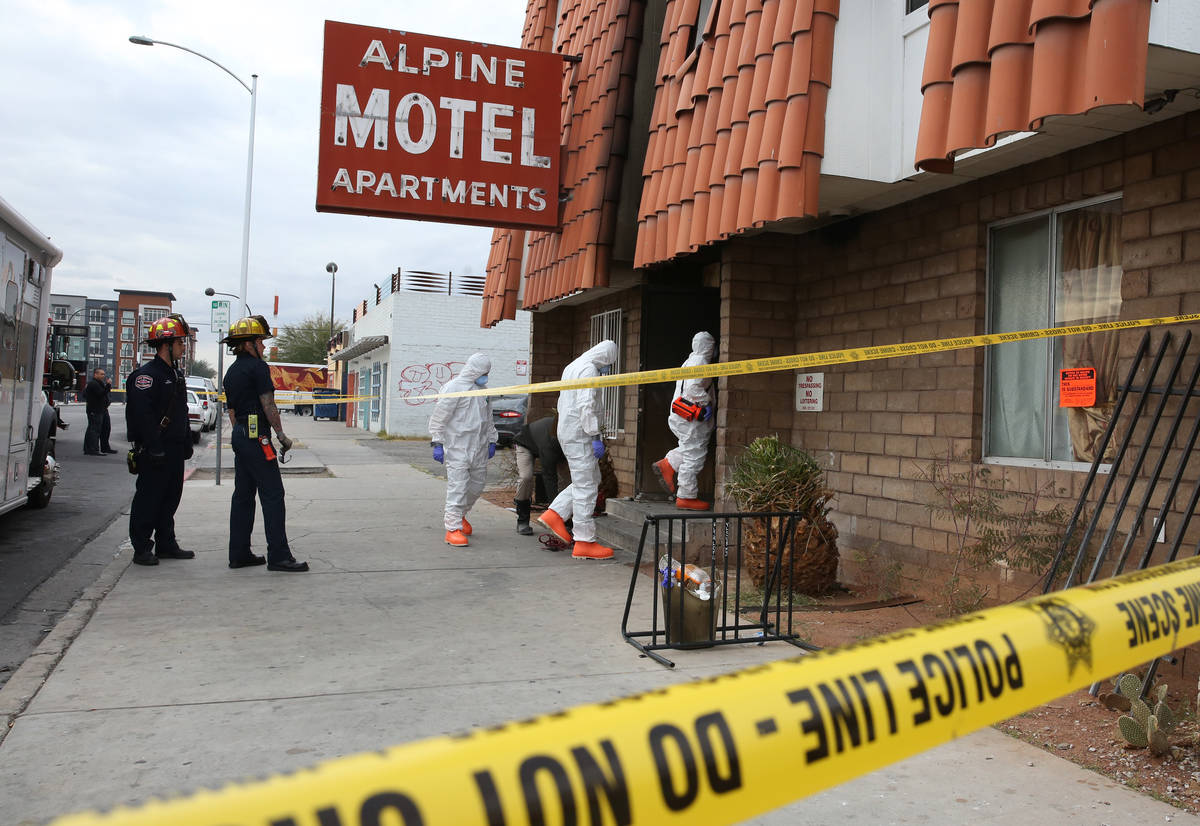Whenever out-of-towners imagine Las Vegas, they’ll usually think of the extravagance of downtown and the strip. Glistening lights, risqué showgirls, exquisite food – It’s like a never-ending party that grossed over $19.5 Billion in the fiscal year 2018 alone.[1] Settled in 1905, Vegas became the most populated American city founded within the 20th century. Like all cities, architects built Vegas outward, so most of the city’s oldest buildings and poorest neighborhoods are just blocks away from that same extravagance.
Another thing Vegas has in common with other American cities is, unfortunately, the rapidly rising rent prices. A two-bedroom apartment that cost me $695/month in late 2014 is now going for $1,175/month, five years later – and most locals would consider that neighborhood sketchy. Just go on Twitter and search “Charleston and Nellis.” If you’re making minimum wage, have a criminal record, or past evictions, then you’ll usually be forced to live in an even less desirable neighborhood. It should go without saying that many of the cheap, “second chance” apartments and extended-stay hotels that will accept people in those circumstances tend to be in those more impoverished neighborhoods downtown and just off the strip. It should also go without saying that those same residences tend to cut corners to save money.
That brings us to December 21, 2019. It’s 4:13 AM on a Saturday, just a couple hours before sunrise, around the time the Fremont Street Experience starts dying down as tourists and locals head home from their night of drunken debauchery. Just five blocks from this scene – about a 10-minute walk away – a fire starts at the Alpine Motel Apartments. Thick, black smoke rose into the air, and some residents were jumping from their windows to escape the blaze just as firefighters arrived.[2] Six people were found dead, along with 13 injured – one of which was a pregnant woman – making this the deadliest fire in the city’s history, since the 1980 MGM fire was in unincorporated Paradise, outside city limits. It displaced around 50 people, days before Christmas. So, how did this fire start? From a stove.
Vegas is well known for its scorching heat, with highs regularly surpassing 115°F in mid-summer. What I think is much less well known is that it commonly gets well below freezing temperatures in winter. While it doesn’t get as cold as Reno – let alone Salt Lake City – 30°F is nothing to scoff at, especially if you don’t have a heater in your home. And that’s where the stove comes into play. Residents said their heat hadn’t been working, so many were using their oven as a heater.
But it gets worse. The Las Vegas Review-Journal interviewed one of the residents, who said that when he noticed the fire and attempted to pull all the fire alarms, none of them worked, and neither did any of the smoke detectors.[3] He said that the maintenance man tried to kick the back door open, but it had bolts keeping it shut – preventing residents from escaping the fire – so that homeless people couldn’t get into the building and sleep.
Some people may blame the residents for “choosing” to live in an apartment without heat, not taking any time to consider the extent to which anyone could regard it as a choice. Even if we set all the circumstances I mentioned earlier aside, we still have to consider the fact that 69% of Americans have savings of $1,000 or less[4] – half of which have no savings at all – 78% of US workers live paycheck-to-paycheck,[5] and 80% of Americans are in debt.[6] Remember the old apartment I mentioned earlier? They told me that if I wanted to end my lease early, it’d cost me one month of rent for every three months left on it. Halfway through, that would’ve been $1,390, aside from first month’s rent and the deposit at a new apartment, as well as a U-Haul and maybe some helping hands. If you think packing up and moving was a feasible option at all for most of these residents, versus just turning on their stove at night instead, your privilege is showing. Yes, they could’ve informed the Southern Nevada Health District or a tenant rights advocacy group that their apartment had no heat. But, for them to help you, you have to send your landlord a written letter informing them of the issue first,[7] and there’d be nothing stopping the landlord from evicting a tenant for a made-up reason if they were to do that. That’s why poor people tend to be much more scared to contact the authorities: fear of retribution. And rightfully so. Notifying monitors would be assuming that no one’s already informed them, or that anything would come out of it.
It doesn’t take a genius to recognize the fact that landlords have significantly more bargaining power than tenants. The more desperate the tenant, the more they’ll usually be willing to forego. That’s why it’s the landlord’s responsibility to make sure they abide by any rules and regulations put in place for the tenants’ safety. If a landlord willingly chooses to disregard tenants’ safety so they can keep a few extra dollars in their pocket, we should put the blame entirely on the landlord, not a tenant that’s in a vulnerable position.
And that’s what happened here, precisely. The landlord already violated three different NRS statutes by not having functioning heating facilities,[8] fire alarms,[9] and smoke detectors,[10] and possibly another by bolting their rear exit shut. If those regulations didn’t prevent this, then what will? More regulations? I don’t think so. Laws only act as a band-aid, but don’t inherently fix the cause of this issue, which is the power imbalance that exists within the landlord-tenant relationship.
Capitalism necessitates profit over everything, even human safety. If we leave a capitalist with the decision to spend more money to ensure the safety of their customers, or disregard customer safety and save money, capitalism incentives them to choose the latter. Profit is the end all be all in capitalism – the alpha and the omega. Profit incentives regulations to be broken, we’ve seen that time and time again; this is just another example. If we want to prevent things like this from happening for good, then we need to switch to the only economic system that puts people and the environment first by eradicating the profit motive: socialism.
In a socialist society, there’d be no profit motive, because there’d be no money. There’d be no ghettos people could coerce others to live in because there’d be no wages or classes. Every residence would have functioning heating facilities, fire alarms, and smoke detectors because there’d be no commodities – nothing would be bought or sold. Everything would be produced of the highest available quality directly for use, according to a decentralized plan, with resources calculated in kind. There’d be no private property – no capital – because everything would either be personal property, or we’d own it in common. There’d be no state, leaders, or countries because we’d finally have direct democracy with an administration of delegates directly subject to the will of the majority, united under a worldwide commonwealth. We could finally use our productive forces rationally, rather than allowing market forces to control them for us.
So, what sounds better to you? Do you want a system that puts profit over human safety or a system that puts social and environmental security over everything? Contrary to what the mainstream media may have you believe: the latter is possible. But a small minority of us can’t build it alone, only a vast majority of us can make it together.
[1] https://gaming.nv.gov/index.aspx?page=144
[2] https://content.govdelivery.com/accounts/NVLASVEGAS/bulletins/272bf75
[3] https://www.reviewjournal.com/videos/alpine-fire-survivor/
[4] https://www.cnbc.com/2016/10/03/how-much-americans-at-every-age-have-in-their-savings-accounts.html
[6] http://www.pewtrusts.org/~/media/assets/2015/07/reach-of-debt-report_artfinal.pdf?la=en
[7] https://www.southernnevadahealthdistrict.org/permits-and-regulations/landlord-tenant-disputes/
[8] https://www.leg.state.nv.us/NRS/NRS-118A.html#NRS118ASec290
[9] https://www.leg.state.nv.us/NRS/NRS-477.html#NRS477Sec130
[10] https://www.leg.state.nv.us/NRS/NRS-477.html#NRS477Sec140
Originally published at http://www.wspus.org/2019/12/fire-on-9th-st/.


